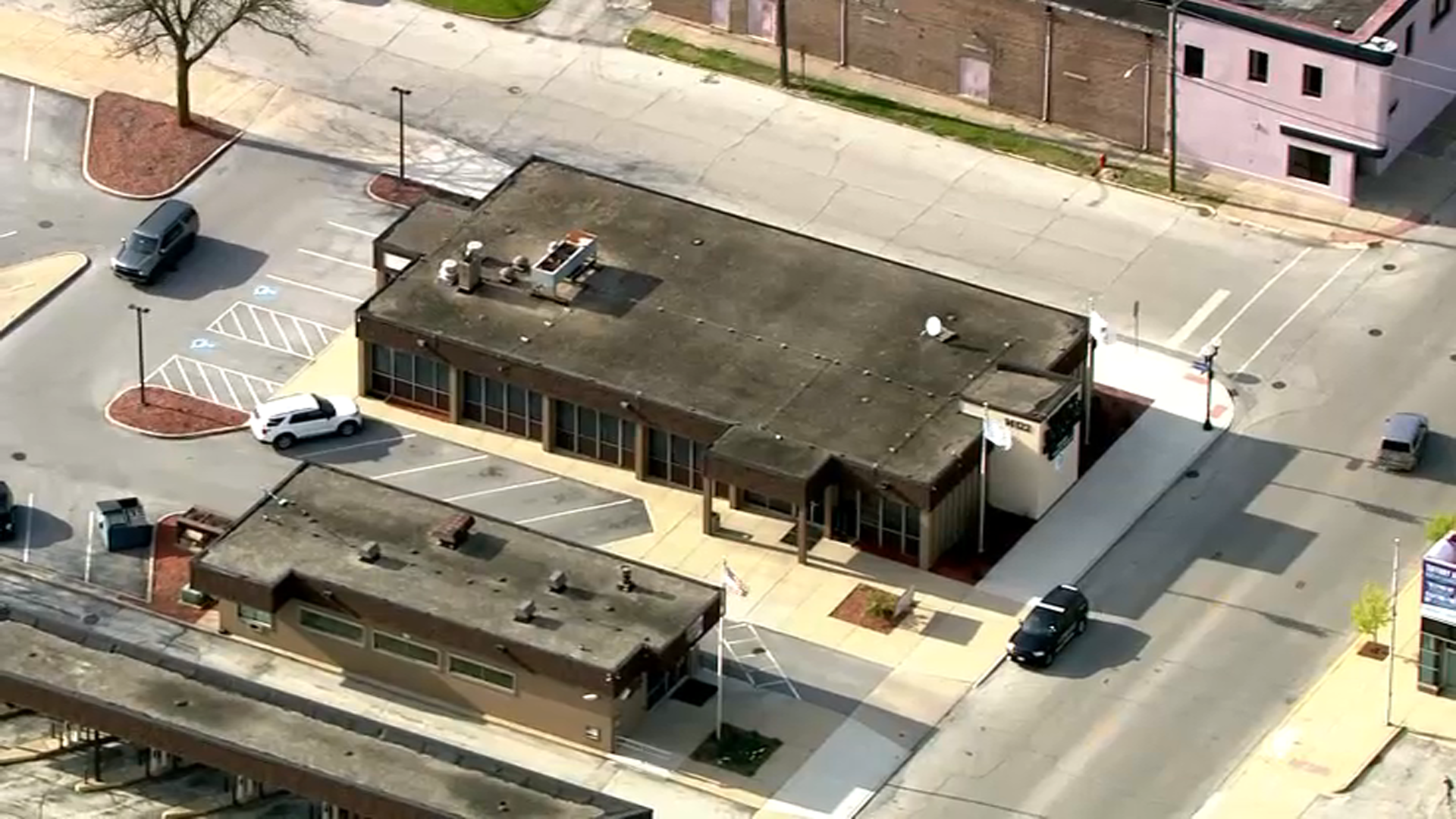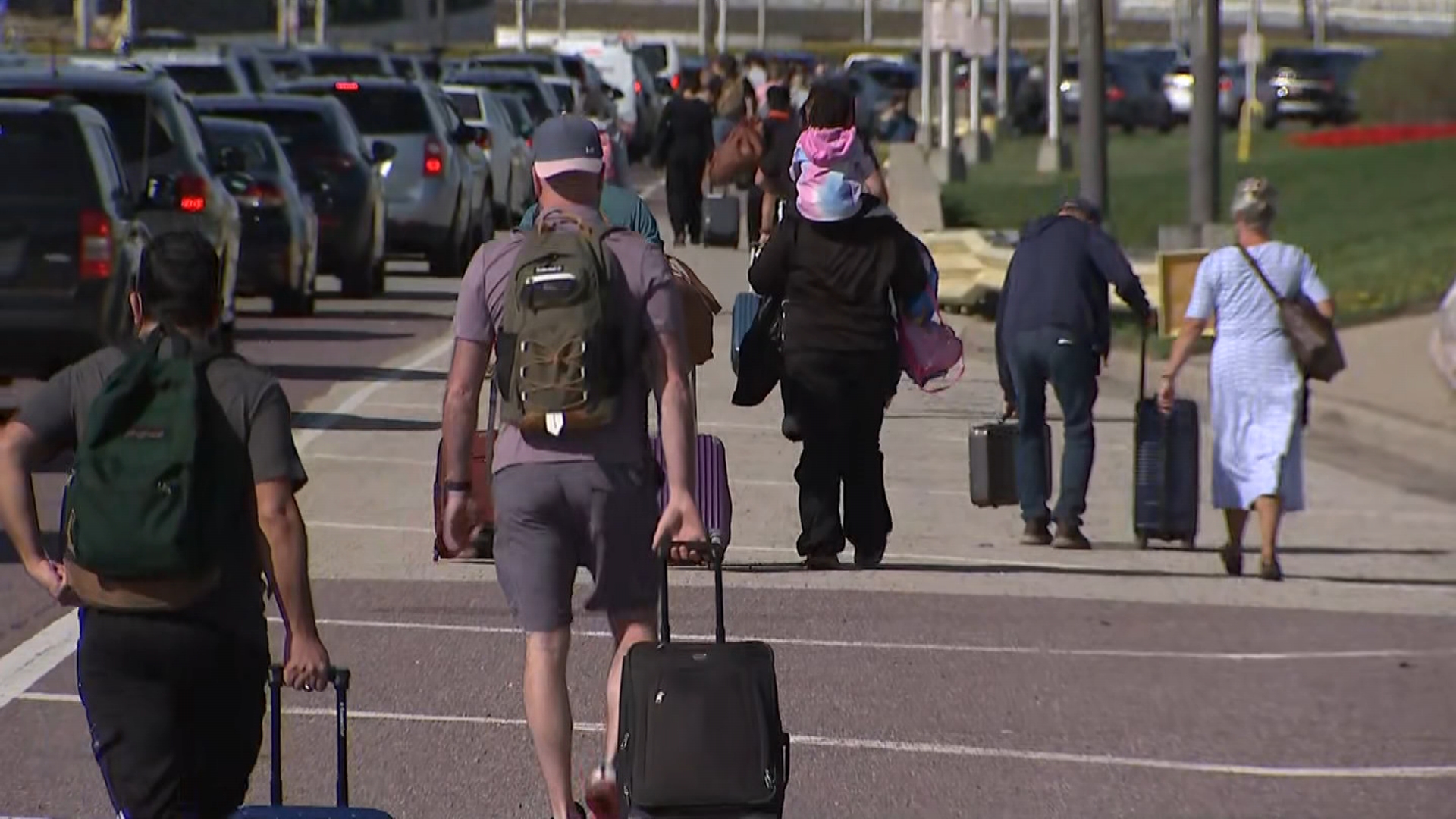Many who previously had one-shot Johnson & Johnson COVID vaccine appointments are now being given the Pfizer or Moderna two-shot vaccines, leading to plenty of questions about second doses.
How much time should you wait between the first and second vaccine dose? What are the side effects and when are you likely going to experience them? When are you fully vaccinated?
Here's a look at what you should know:
How long must you wait after receiving your second shot before you are considered "fully vaccinated?"
Feeling out of the loop? We'll catch you up on the Chicago news you need to know. Sign up for the weekly Chicago Catch-Up newsletter here.
Complete vaccination is said to be two weeks after a person receives their second dose of the two-shot Pfizer and Moderna vaccines.
Do you need both doses?
Yes, experts say.
Local
"The Pfizer-BioNTech COVID-19 Vaccine and Moderna COVID-19 Vaccine both need 2 shots in order to get the most protection," the CDC states.
A new CDC study reported that a single dose of Pfizer's or Moderna's COVID vaccine was 80% effective in preventing infections. But that number jumped to 90% two weeks after the second dose, the study on vaccinated health care workers showed.
"I would really encourage you to go back and get your second shot, and that would be true for Moderna, that would be true for Pfizer," Chicago Department of Public Health Commissioner Dr. Allison Arwady said last week. "Because, you know, in the trials you do have some protection, that's correct. After that first dose in the trials, it was about 50% protection. There's been some work afterwards and, yes, it could be somewhat higher, but to get to that, you know, 90-95% protection level, you do need both doses."
In addition, researchers at Northwestern University’s Institute for Policy Research say a new study has indicated that one dose of two-dose COVID-19 vaccines does not provide sufficient protection against the virus in individuals who had previously had mild or asymptomatic cases of the disease, meaning that those individuals are still advised to get both doses of the vaccine.
Can you mix up which vaccine you get for each dose?
According to CNBC, governments have differing answers to this question but some health experts say that the mixing and matching of the vaccines should be safe. Clinical trials are ongoing on the subject, however.
Arwady said earlier this month that she wouldn't recommend it.
"You get one, you do not need to get Moderna and Pfizer or Pfizer and J&J," she said. "You just need one vaccine but to finish the series of that vaccine... what would be probably recommended, it would be more like if we were really at a point where we had concerns about a new variant, there would probably be a completely separate booster that would be recommended. I don't think this is something that's going to happen very soon if we're not talking in a few months, we might be talking about never, but it would be more my presumption there would be more, like, I got the Pfizer vaccine and Pfizer a year from now is making a sort of a booster dose that is against a newer variant. That's how I think it's more likely that it might happen... right now, no please do not try to get multiple doses of different manufacturers. We do keep track of everybody's vaccine records, and it's not needed and it's not recommended."
How effective is the vaccine after the second shot?
A recent CDC study reported that a single dose of Pfizer's or Moderna's COVID vaccine was 80% effective in preventing infections. That number jumped to 90% two weeks after the second dose, the study on vaccinated health care workers showed.
When do you receive your second shot after getting your first one?
- The second Pfizer-BioNTech dose should be given 21 days after your first dose
- The second Moderna vaccine dose should be given 28 days later
According to the CDC, second shots should be administered as close to the recommended interval as possible, but can be given up to 42 days after the first dose, if necessary.
Though the CDC says second doses should not be administered earlier than the recommended interval, those given "within a grace period of 4 days earlier than the recommended date for the second dose are still considered valid."
Are you more likely to experience side effects after the second dose?
According to the CDC, side effects after your second shot "may be more intense than the ones you experienced after your first shot."
"These side effects are normal signs that your body is building protection and should go away within a few days," the CDC states.
What are the side effects?
According to Pfizer, about 3.8% of their clinical trial participants experienced fatigue as a side effect and 2% got a headache.
Moderna says 9.7% of their participants felt fatigued and 4.5% got a headache.
The CDC reports common side effects on the arm where the shot was administered include:
- Pain
- Redness
- Swelling
Common side effects in the body include:
- Tiredness
- Headache
- Muscle pain
- Chills
- Fever
- Nausea
Are you more likely to get side effects after the first or second dose?
With the two-shot vaccines, people are more likely to report side effects after their second dose, experts have said.
According to the CDC, side effects after your second shot "may be more intense than the ones you experienced after your first shot."
"These side effects are normal signs that your body is building protection and should go away within a few days," the CDC states.
In trials of both the Moderna and Pfizer vaccines, more people experienced side effects after the second dose.
But that doesn't mean that you shouldn't get your second shot if you get side effects after your first, experts say.
“When people receive that second dose, they are receiving the second booster to try and reach the maximum efficacy," said Dr. Edward Cachay, infectious disease specialist at UCSD.
The CDC also noted that both shots are needed.
"The Pfizer-BioNTech COVID-19 Vaccine and Moderna COVID-19 Vaccine both need 2 shots in order to get the most protection," the CDC states. "You should get the second shot even if you have side effects after the first shot, unless a vaccination provider or your doctor tells you not to get it."
If you get COVID between your first and second dose should you reschedule your second dose appointment?
According to Loafman, it is recommended that you reschedule.
"First of all, you know, you're already developing some natural immunity from the virus itself. So, the need for the vaccine is now delayed so there's no urgent need to do it because you already have immunity - natural immunity," he said. "And in addition, there is some concern that some patients will have worse side effects then, because they're still kind of recovering, they're still developing the initial immunity from the virus. So there's pain without the game, potentially."
According to Loafman, there's a window of time to reschedule.
"You have some time, a window, and it's thought to be a minimum two to three months of good, healthy immunity from the virus itself," he said. "So take that opportunity to convalesce and recover, and then get or finish the COVID vaccination when it will start to become helpful again."
But when will you know when you should reschedule?
Chicago's top doctor said the quarantine measures required for anyone who gets COVID still apply, regardless of vaccination.
"If you get COVID between your first and second vaccine dose, you need to isolate just like you would if you got COVID not related to your vaccine does," Chicago Department of Public Health Commissioner Dr. Allison Arwady said. "So if you get COVID you need to stay home for the full minimum of 10 days and until your symptoms have resolved, assuming that you had symptoms. Once your symptoms have resolved, once you're totally feeling better and you're no longer infectious, you can go ahead and get that second dose."
What can you do after you've received your second dose?
The Centers for Disease Control and Prevention recently updated their guidelines for vaccinated individuals.
The recommendations from federal health officials say fully-vaccinated Americans can gather with other vaccinated people indoors without wearing a mask or social distancing.
Here's a complete guide to what you can and cannot do once you are fully vaccinated.



